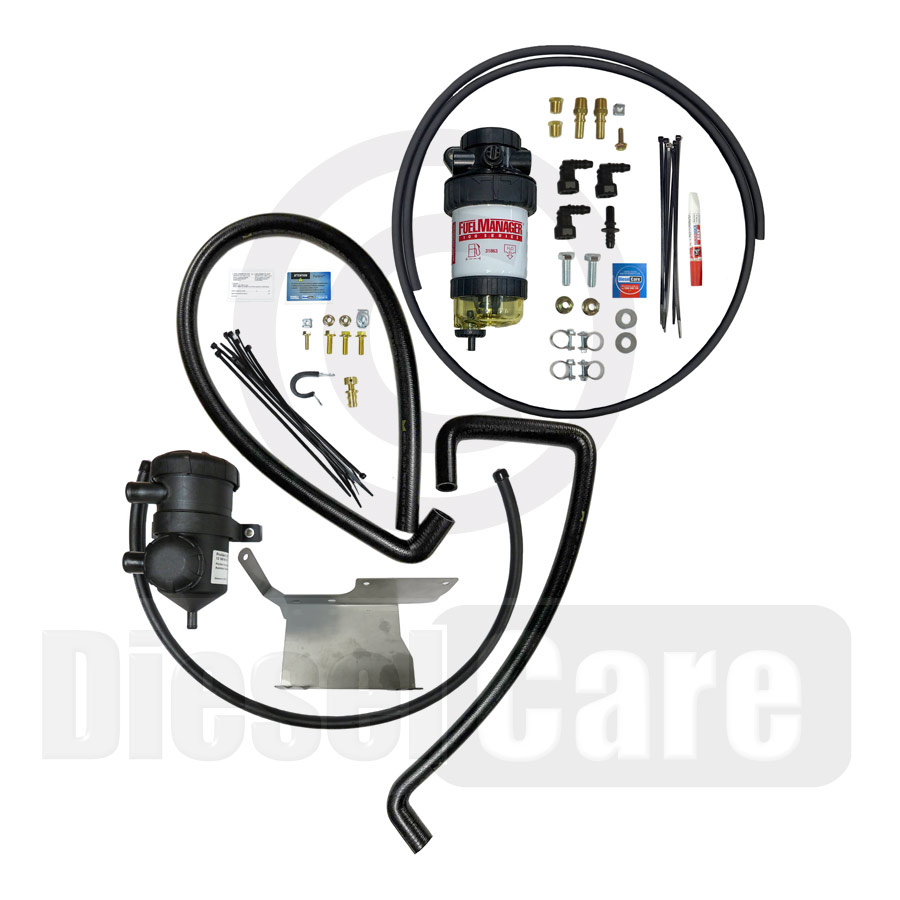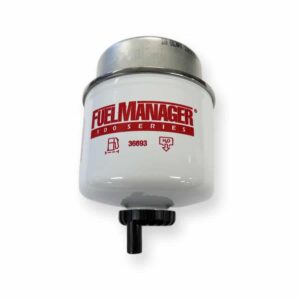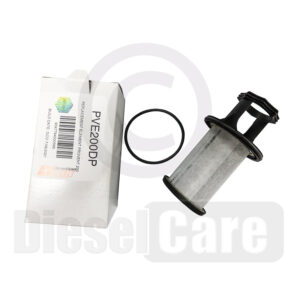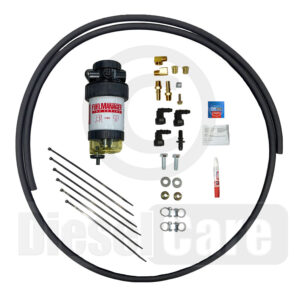Primary Diesel Care, Fuel Manager Fuel Filter Kit – Superior protection from contaminated fuel for the Volkswagen Amarok TDV6 3.0L V6 Next Gen MY23 D4D.
Model Year: Late 2022 – Current
Engine: power 184kW, torque 600Nm
Part Number: DCDKP071
Safeguard against both oil and soot build-up, as well as contaminated fuel, with this all in one premium Diesel Care™ Provent© Catch Can and Fuel Manager Fuel Filter Dual Kit.
CLEANLINESS = EFFICIENCY. PREVENT CARBON BUILD-UP Diesel Care Catch Cans are installed as an oil mist filter on modern diesel engines fitted with exhaust gas recirculation systems (EGR) to catch and prevent oily vapours entering the air intake and coating the inlet manifold with carbon build up. The results of this build up will be expensive repairs, increased fuel consumption and reduced performance for your vehicle. This can easily be prevented by installing a Diesel Care™ Provent© Catch Can.
Why Install a Catch Can kit?
Modern diesel engines with exhaust gas recirculation (EGR) systems are prone to carbon buildup in the intake manifold. Without proper intervention, oily vapors can coat the manifold, leading to costly repairs, increased fuel consumption, and reduced performance. Installing a ProVent Catch Can effectively stops these vapours from entering the intake system, protecting your engine and saving you money in the long run.
This D.I.Y. kit makes installation straightforward, so you can quickly enjoy the benefits of a cleaner and more efficient engine.
Key Features of the Diesel Care ProVent Catch Can Kit:
-
- Substantially reduces deposits forming in the air intake system.
- Prevents costly repairs caused by carbon buildup.
- Helps maintain engine performance and fuel efficiency.
- Keeps critical engine components clean for optimal function.
- Stops oil buildup in intercoolers, improving longevity.
DEFEND AGAINST CONTAMINATED FUEL The heart of the diesel engine is the fuel injection system. Water, microbial growth (algae) or fine particles of dirt can cause damage to the pump and injectors. Worn or malfunctioning injectors can even lead to engine damage or failure. The most effective way to safeguard against problems is to install an additional fuel filter either before or after the factory filter. Filtering fuel twice greatly reduces the chance of contamination reaching the injection system and can save a whole lot of headaches.
Why Choose a Primary Fuel Filter?
A primary fuel filter sometimes called a pre filter improves fuel cleanliness by adding an extra filtration layer BEFORE the factory filter. Fuel passes through this relatively coarse 30 micron filter first before continuing on to the vehicle’s factory installed filter, then to the high pressure pump. In effect, this will protect your fuel injection system from potential damage.
Key Features of the Primary Fuel Manager Kit:
-
-
- Provides Superior Protection: Acts as a backup to catch contaminants before reaching the factory filter.
- 30-micron filter: Efficiently captures large particles, improving fuel cleanliness and protecting engine components.
- Water Removal: Separates water from diesel fuel to prevent corrosion and damage to the fuel system.
- Extends factory filter life: Reduces maintenance costs by easing strain on the factory filter.
- Prevents Costly Repairs: Reduces the risk of expensive fuel system repairs.
- Protects Fuel Injection System: Safeguards your diesel fuel injection system from damage.
- Maintains Engine Cleanliness: Ensures critical engine components stay clean and debris-free.
- Maintains Engine Performance: Supports optimal engine performance and fuel efficiency.
-
Maintenance and Filter Replacement
The Fuel Manager Primary Filter features a replaceable filter cartridge that traps contaminants in the diesel fuel. To maintain peak performance, we recommend replacing the filter element every 20,000km or at the same time as you would your factory filter. However, if you encounter contaminated fuel, it’s best to replace the filter earlier and ensure superior protection from contaminated fuel.
Regular visual inspections of the filter bowl are crucial. Check for water accumulation every 5,000 km and drain it as needed to avoid water entering your fuel injection system.



